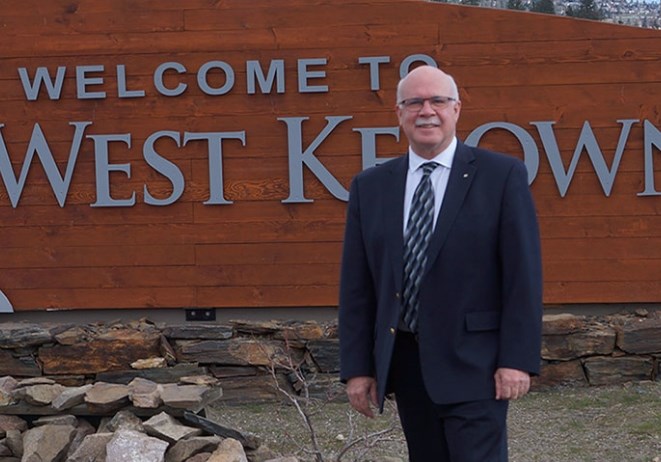
Gord Milsom
Image Credit: SUBMITTED/Facebook
February 28, 2020 - 5:30 PM
West Kelowna Mayor Gord Milsom can’t understand why the province has included his city in its Speculation and Vacancy Tax and the data seems to back him up.
“I have no idea why we’re in there,” he told iNFOnews.ca today, Feb. 28. “It just doesn’t make sense that we are included. We’ve never got any real specific response (from the province).”
Last year, the tax was collected from owners of 177 of West Kelowna’s 12,798 properties. Only six were owned by non-Canadians, he said, noting a big part of the justification for the tax was to target foreign owners.
“For us, foreign ownership is not an issue,” Milsom said. “The people that got impacted in West Kelowna are Canadians and the majority of them are from Alberta who have owned properties in our community for decades, many of them. They come here for months at a time. Their children go to school here. They contribute to charities locally. They invest in our economy by playing golf, going to wineries, eating in our restaurants. They’re citizens of West Kelowna in many ways. I don’t think it’s right.”
Last fall, during a meeting with the Minister of Finance attended by most cities included in the tax, Milson gave the government 27 pages of arguments against the tax being collected in West Kelowna. He provided a copy to iNFOnews.ca this week.
Some of the documented facts included things like, with 35,000 residents, it’s not a large urban centre. They also pointed to how the construction of more than 1,000 rental units being built or under construction since 2017 has lowered the city’s rental vacancy rate, another goal of the tax.
While Milsom said some developers chose not to build in West Kelowna because of the tax, he had no specific examples, other than to say sales at the high-end Paradise Estates did decline after the tax was implemented for the 2018 tax year.
He did note, however, that in discussions with realtors, there is anecdotal evidence that the market for vacation or retirement homes has definitely dwindled because of the tax.
“I think they’re pretty sincere,” he said of the realtor’s comments. “There’s obviously an impact but it’s hard to quantify.
On the other hand, the city had “tremendous growth because people just want to live here,” he said.
Another concern is that revenue from the tax is supposed to go back to the cities where it was collected. He thought that was supposed to happen on an annual basis.
In West Kelowna, just over $1 million was collected from 17 properties – or close to $5,650 per property – but there’s been nothing said by the province about any spending planned for West Kelowna. Milsom pointed out, as an example, that his city only has about 400 subsidized rental housing units versus around 2,000 in some other similar-sized cities.
West Kelowna sent another letter to Minister of Finance Carole James this week to lobby to be excluded from the tax and the city is in the process of trying to arrange a meeting with her (and other ministers on other issues) in early May.
West Kelowna has battled the tax for years and there was one case in 2018 where a developer announced he was pulling out of a 1,000-unit housing project because of the tax.
To contact a reporter for this story, email Rob Munro or call 250-808-0143 or email the editor. You can also submit photos, videos or news tips to the newsroom and be entered to win a monthly prize draw.
We welcome your comments and opinions on our stories but play nice. We won't censor or delete comments unless they contain off-topic statements or links, unnecessary vulgarity, false facts, spam or obviously fake profiles. If you have any concerns about what you see in comments, email the editor in the link above.
News from © iNFOnews, 2020